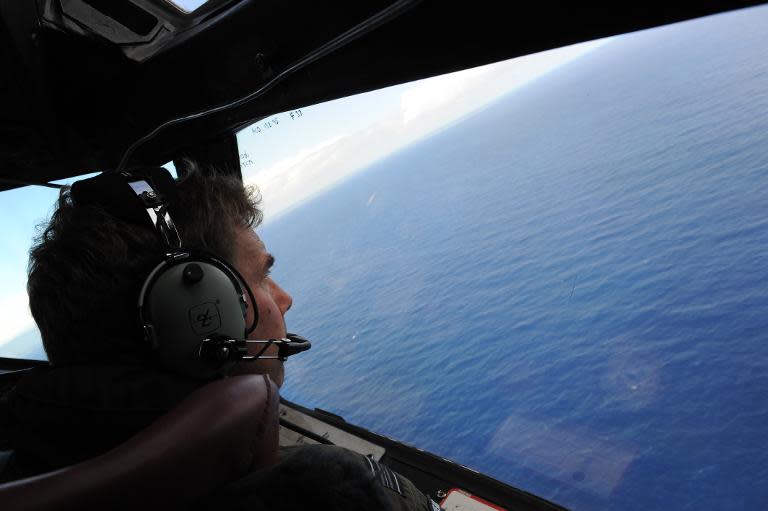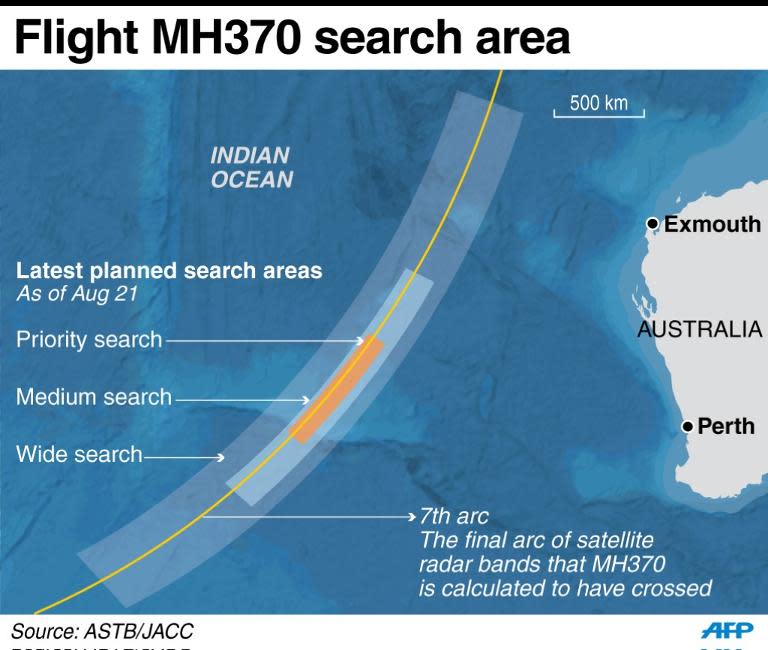New underwater discoveries in hunt for MH370
Remnants of volcanoes, towering ridges and deep trenches have been discovered on the seabed of the southern Indian Ocean by experts mapping the underwater terrain as part of the search for missing Malaysian Airlines flight MH370. Australian authorities released the three-dimensional images on Friday, revealing for the first time details about the seafloor where efforts are being concentrated to find the jet, which is presumed to have crashed into the sea on March 8. The area in which the plane is thought to have gone down is remote and largely unexplored, and officials are conducting an intensive survey of the seabed before the underwater probe for the plane can begin. "The recently acquired high-resolution bathymetry (underwater survey) data has revealed many of these seabed features for the first time," the Australian Transport Safety Bureau, the agency leading the search, said in a statement. "It is also revealing finer-scale seabed features that were not visible in the previous low-resolution, satellite-derived bathymetry data." The MH370 search area far off Western Australia includes the seabed on and around an extensive, mountainous ridge that once formed the margin between two geological plates. The expanse has many of the features typically found in such areas, with the tectonic movements having created now-extinct volcanoes, rugged ridges up to 300 metres high and trenches some 1,400 metres deep compared to the surrounding sea floor, the ATSB said. The bureau said the identification of these features would assist in navigation during the underwater search phase for the Boeing 777, which is due to begin next month. Australia has vowed to do all it can to find the last resting place of MH370, which was carrying 239 people, many of them Chinese passengers, when it went missing during a routine flight from Kuala Lumpur to Beijing. The plane is believed to have crashed into the southern Indian Ocean far off the west coast of Australia after mysteriously diverting off-course, but a massive air, sea and underwater search has failed to find any wreckage. Experts have used technical data to finalise its most likely resting place ahead of next month's underwater search.



